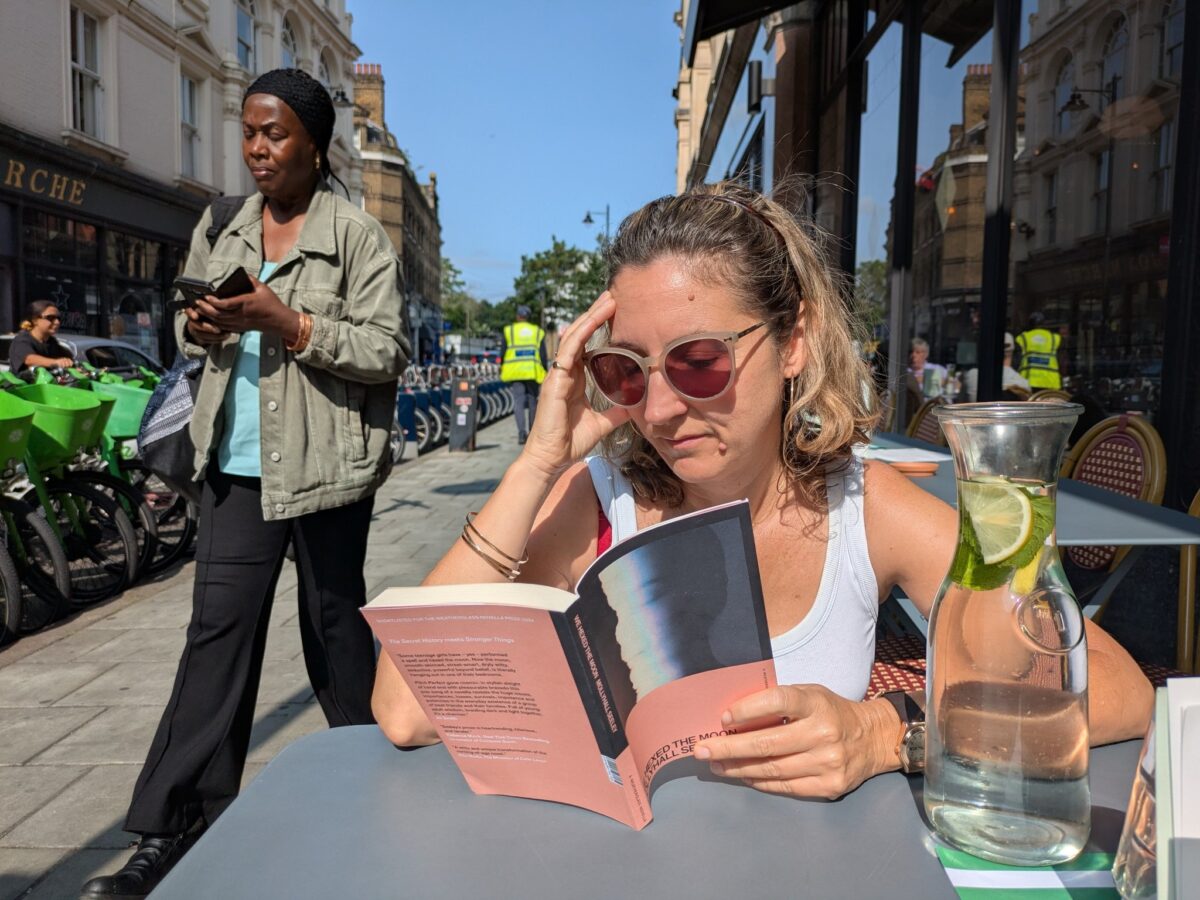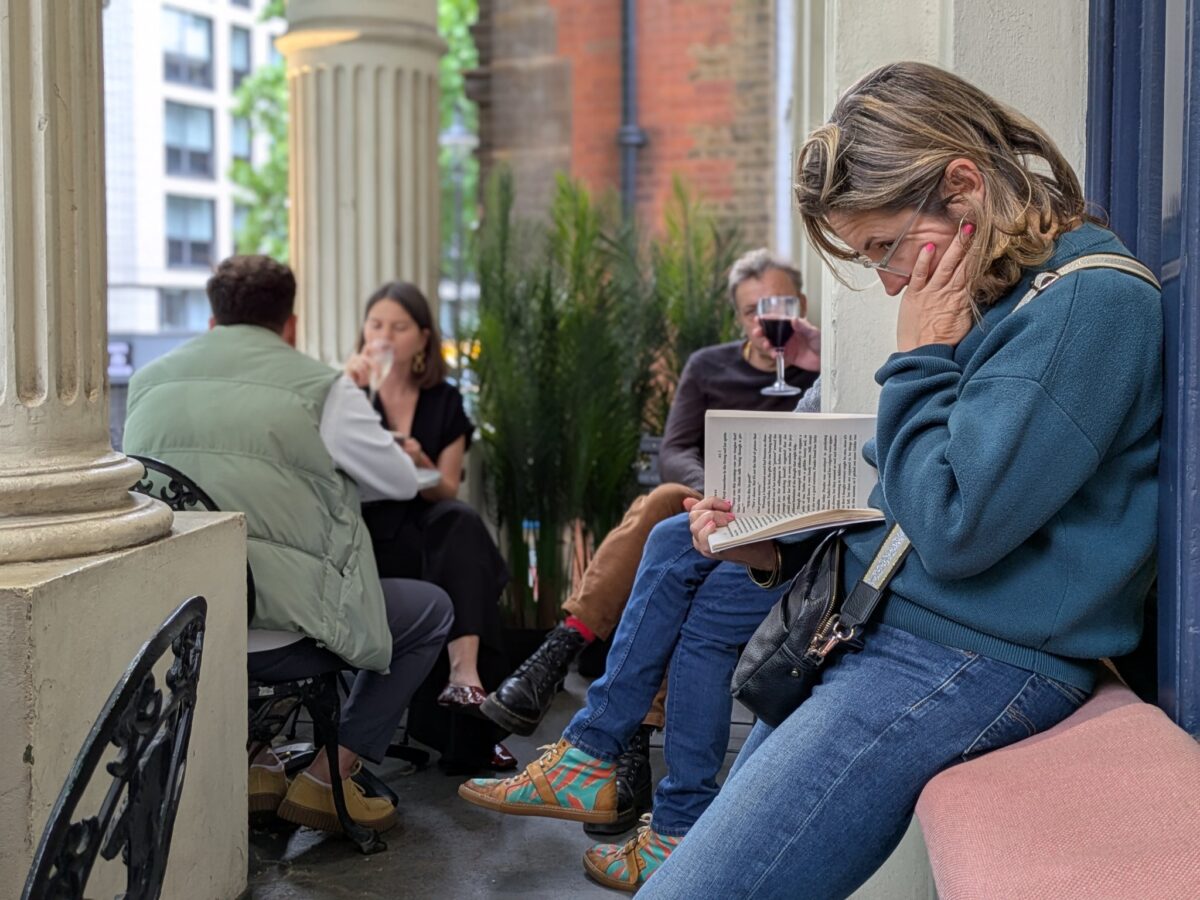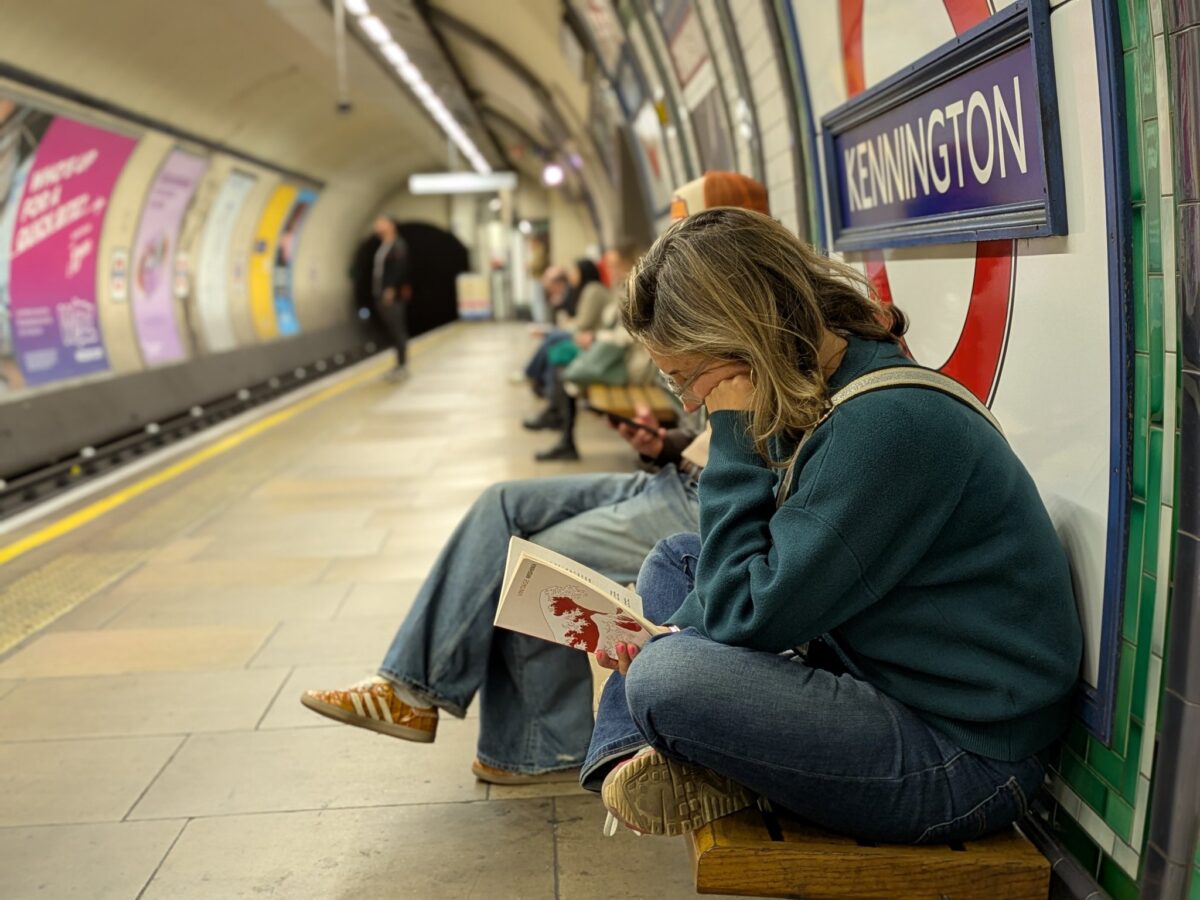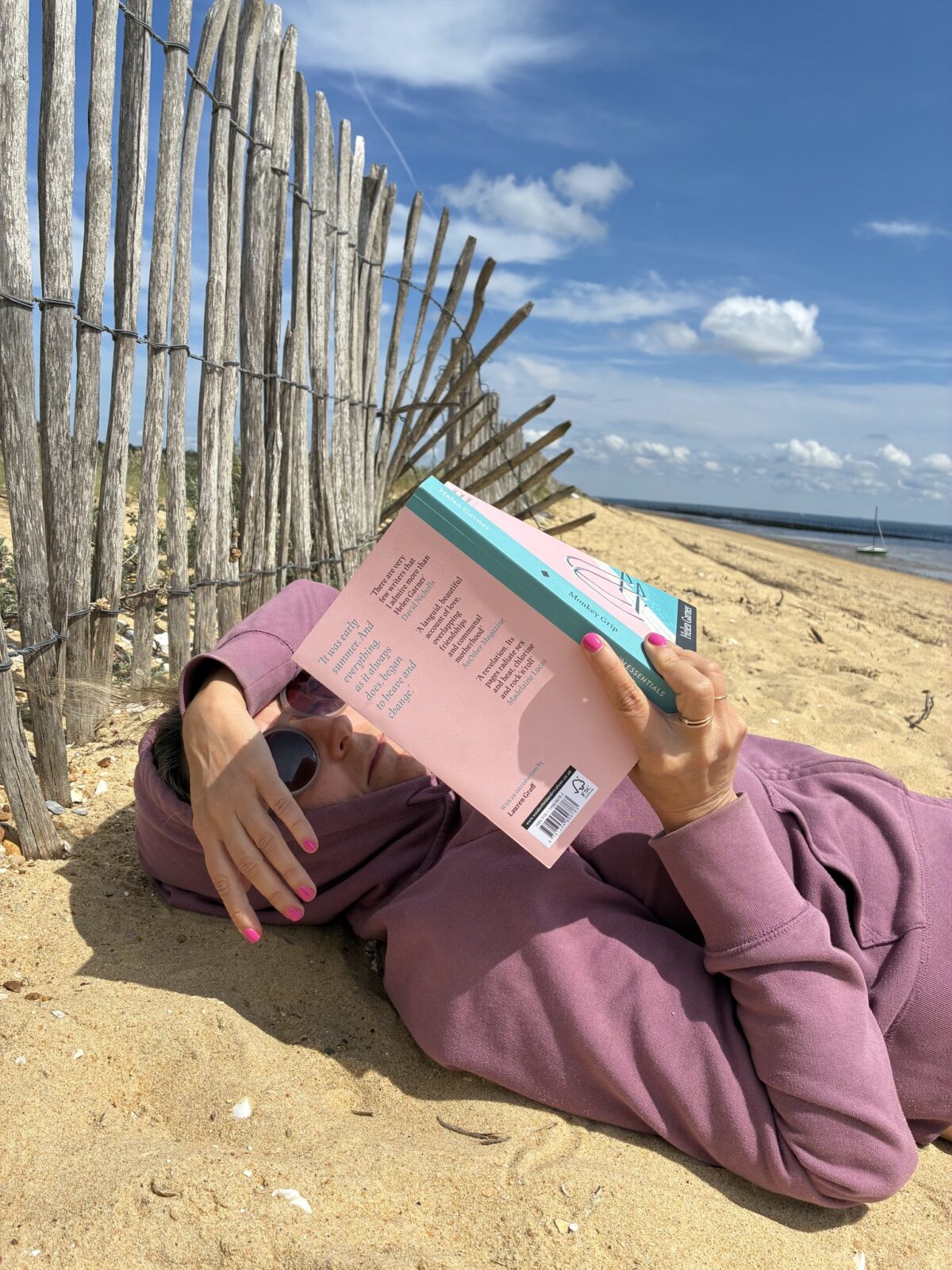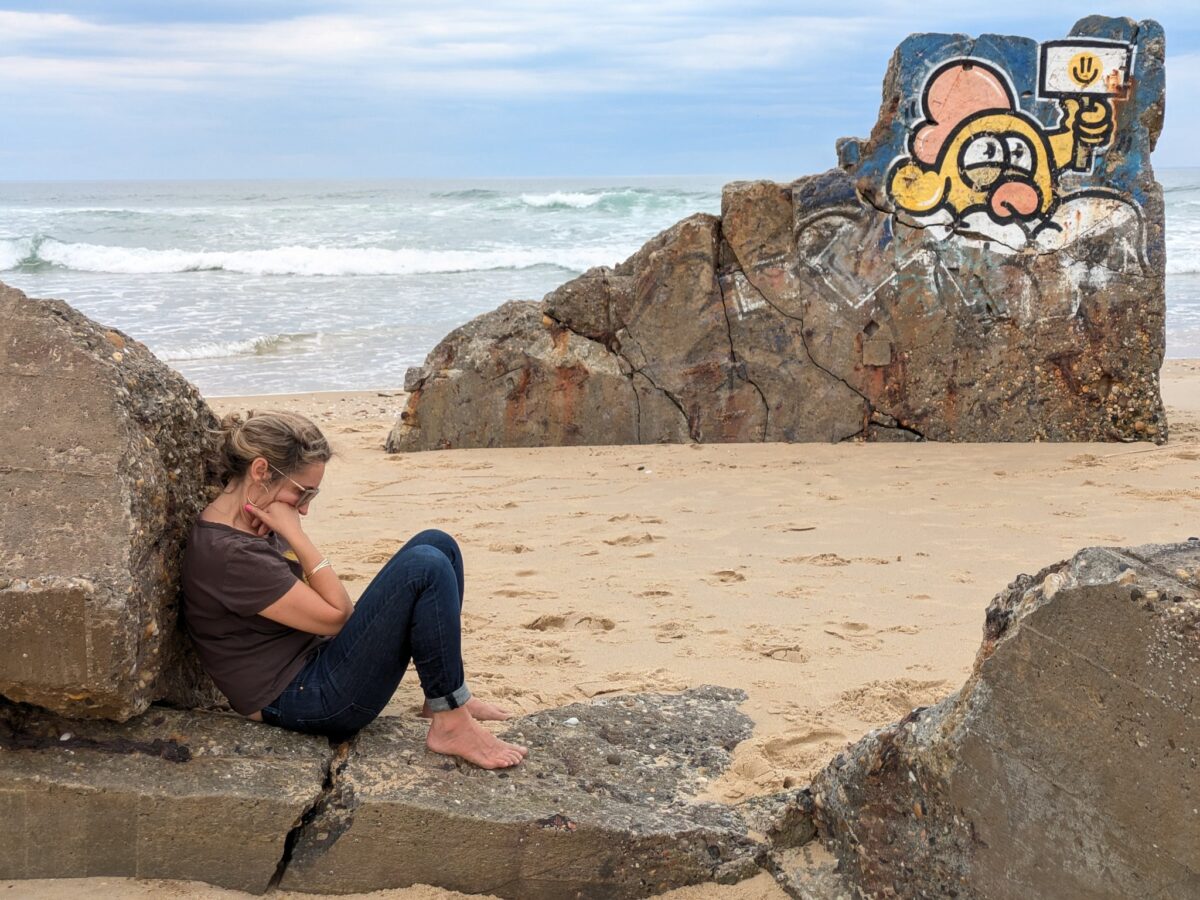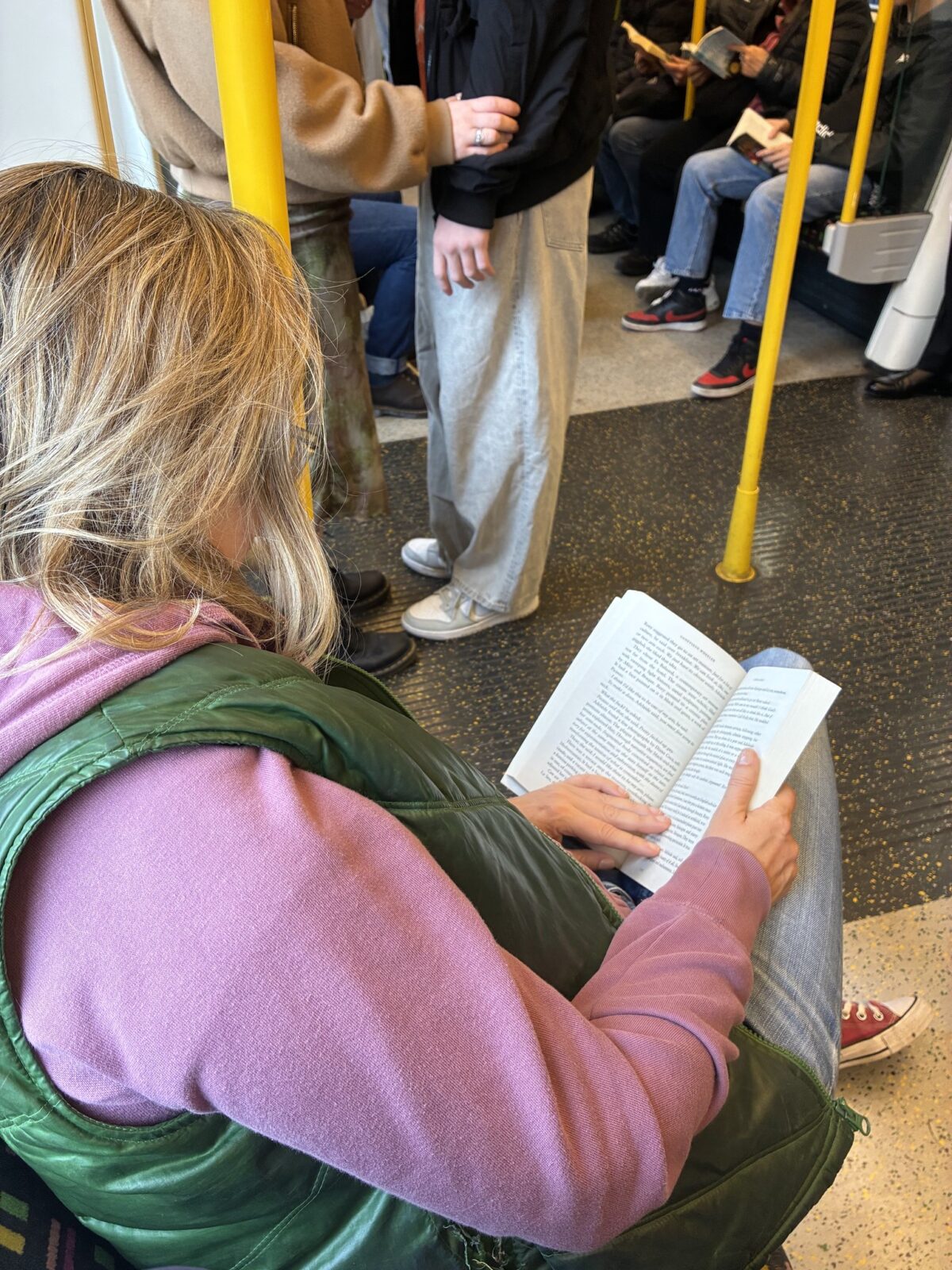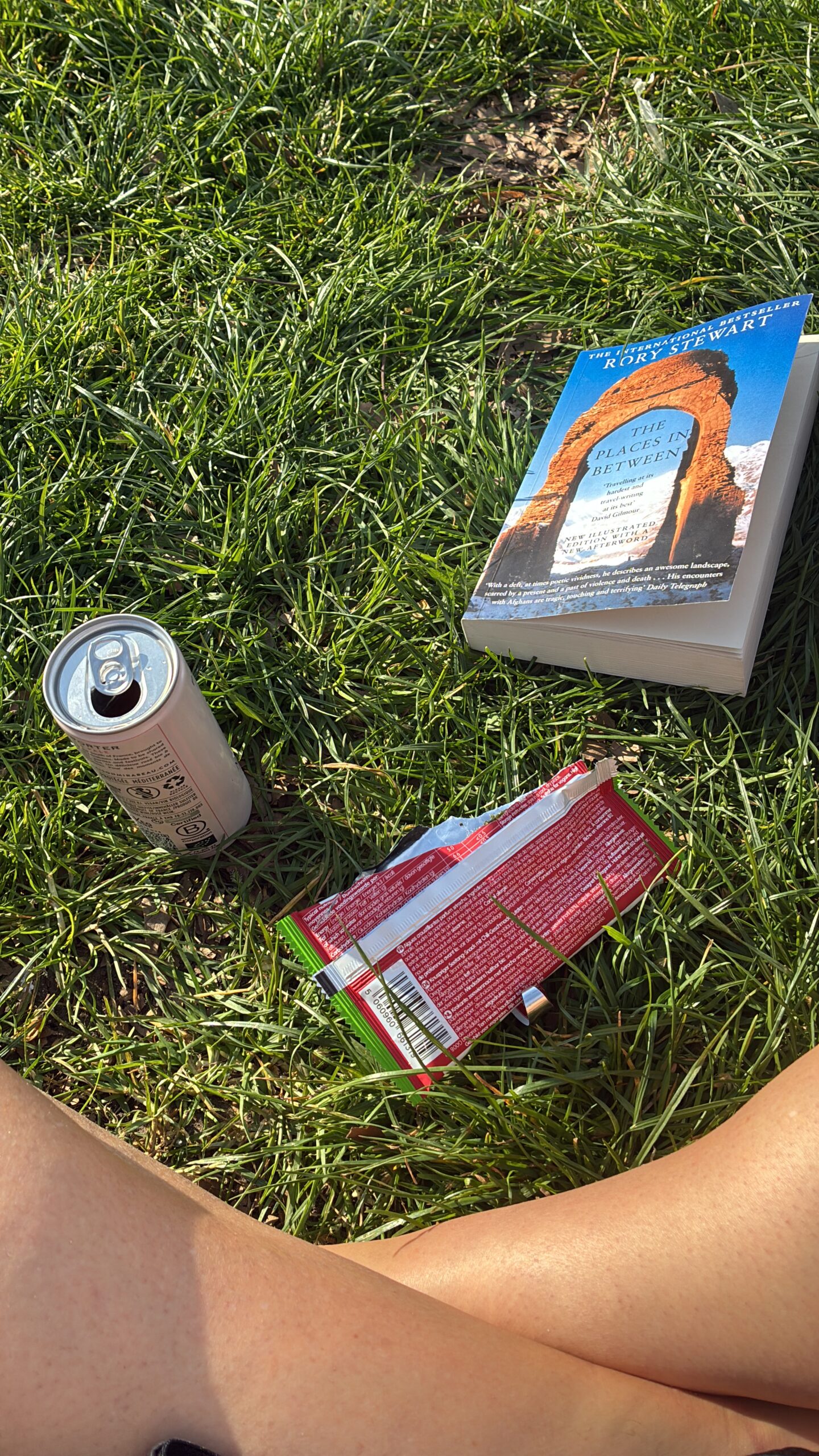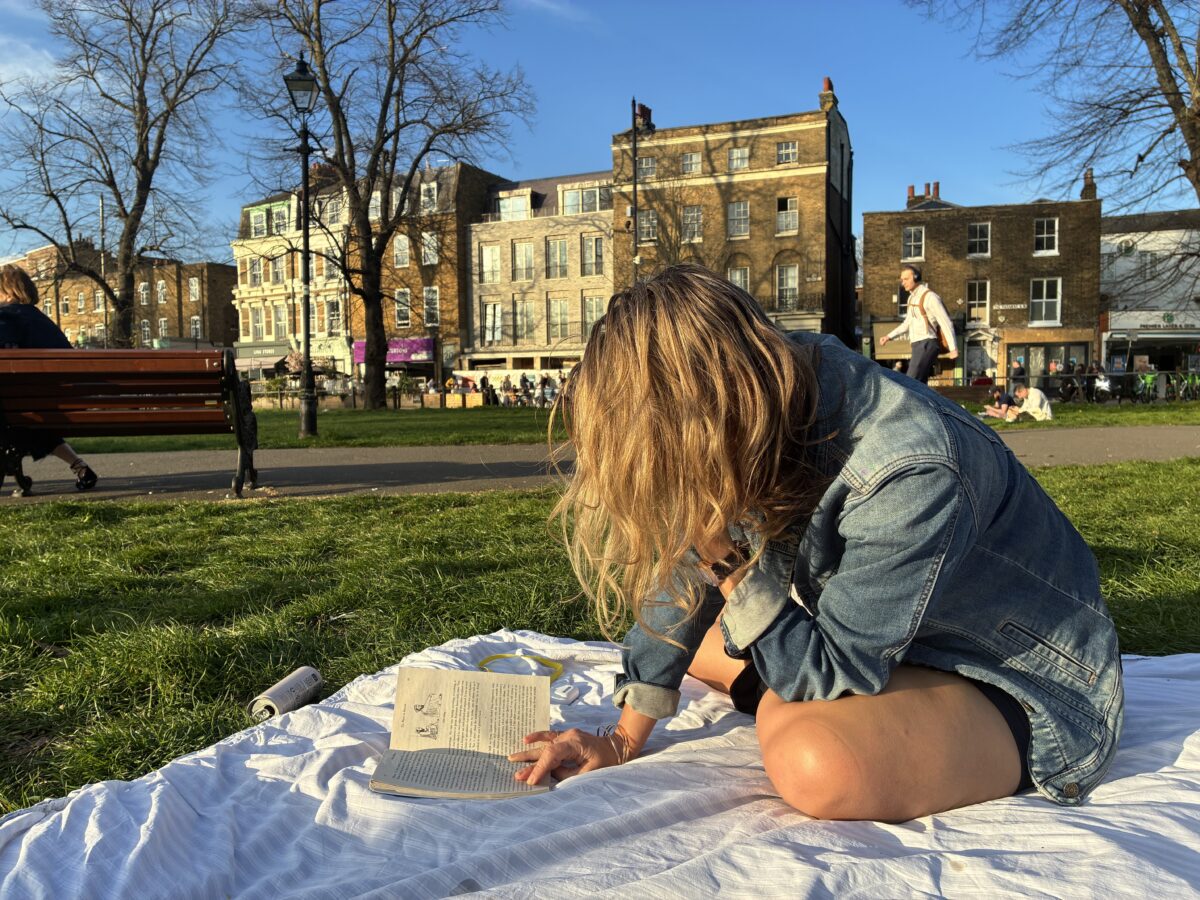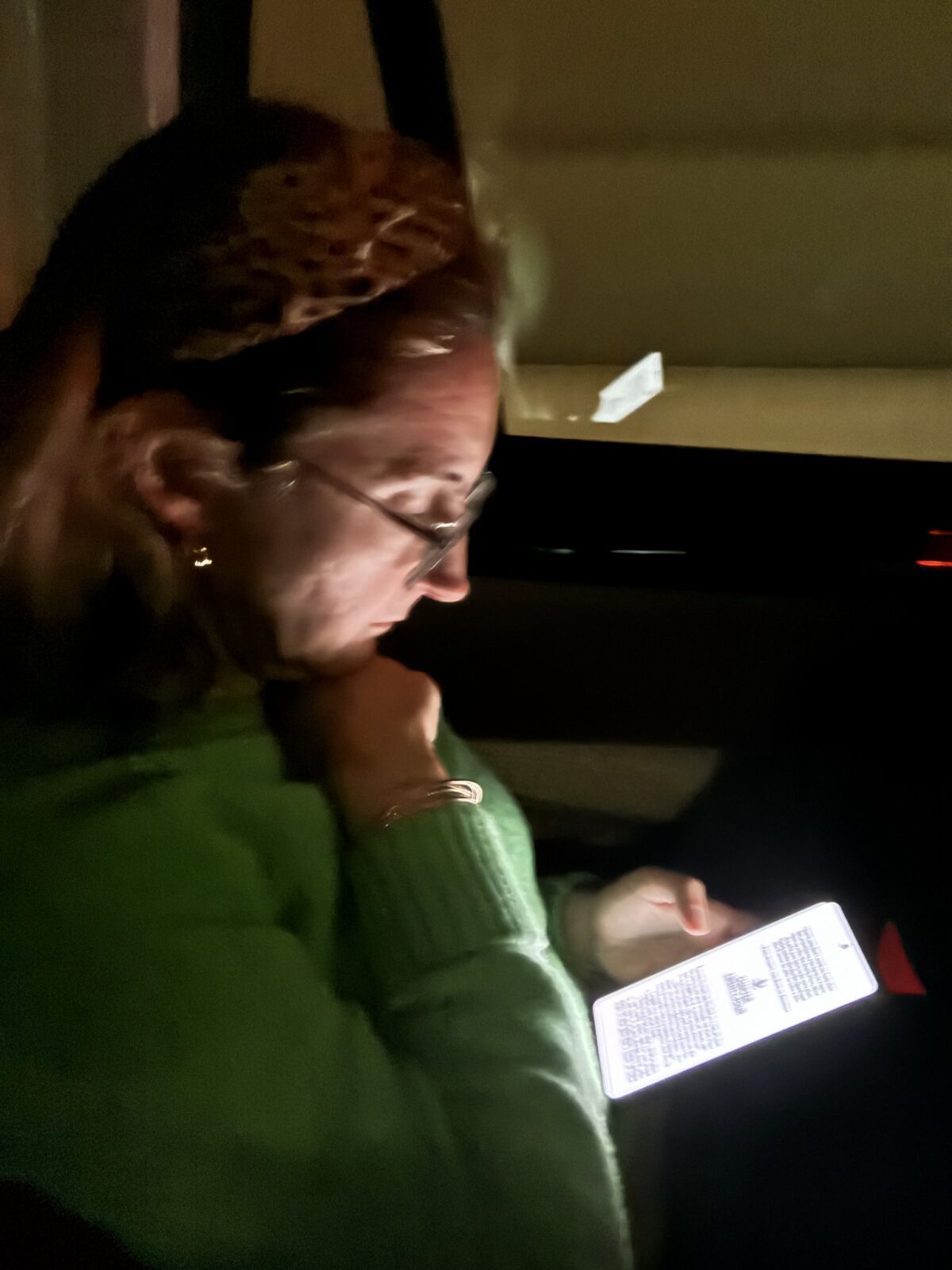Here is a book the author describes as being about: “four best friends who fuck around with The Moon and then very quickly Find Out about The Moon.” As you can maybe tell, it is a triumph of voice, and specifically GenZ voice.
The friends do a spell that pulls the moon from the sky.. The moon then comes to their house and wants answers. This plot, while wild, is really neither here not there. What matters is the vibe. Let me not talk about it, let me just quote extensively from the first page:
“Twitter is crumbling, fittingly, into a timeline of what is no longer called Tweets, now called Xs. Twitter is dead & so is nature, probably. Jen’s never having kids. That’s what Jen’s college application was about, framed through a lens of climate grief, ‘the sense of loss that arises from experiencing or learning about environmental destruction or climate change.’ Jen’s college counselor thought grief was a very powerful world. She said Why say grief and not sadness & Jen said Sadness is local, grief is cosmic. Global heating. Universal heating, maybe, who knows. So Jen’s not having kids but she is going to Yale.”
I’ve never read a book quite like it. I can’t say I know what it was ‘about’ – my female friendship? I didn’t care about the characters or anything like that, but I don’t think that was the point.

